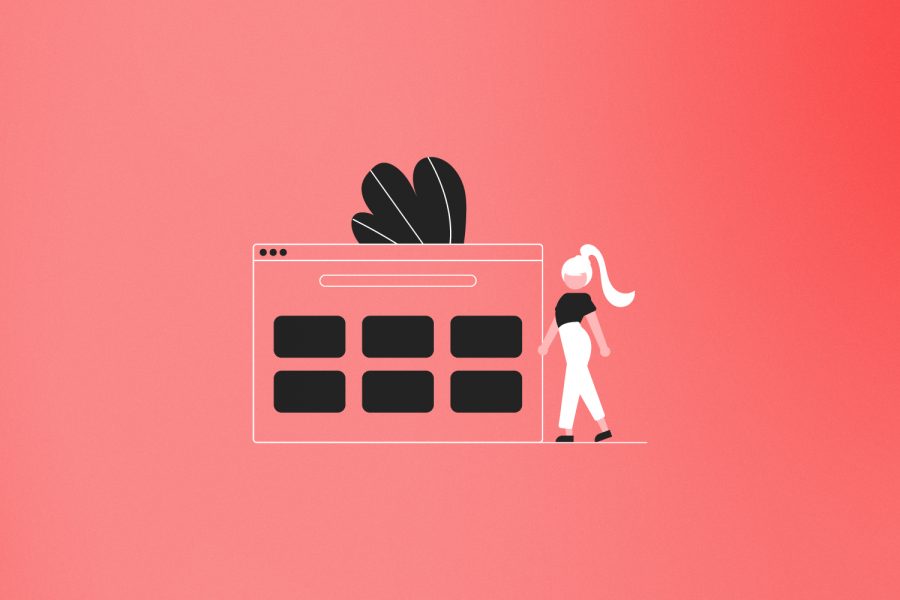We live in a society that glorifies busyness, where being productive is equated with success and self-worth. But what if we told you that this constant pursuit of productivity can actually be harmful? That it can lead to burnout, anxiety, and a constant feeling of never being “enough”?
If you look around, toxic productivity is everywhere. So it’s time to take a step back, catch our breath, and question whether the pursuit of productivity has started to consume us rather than empower us.
In this blog, we will delve deeper into what is toxic productivity, what causes it, how to identify it, and ways to overcome it so that you can embrace a more holistic, meaningful way of living. Let’s get started!
What is Toxic Productivity?
Toxic productivity refers to a harmful mindset and societal construct that emphasizes a constant drive for maximum productivity and efficiency at the expense of one’s well-being and overall quality of life. It is when we’re pushed to work harder and faster all the time, even if it’s hurting us.
It’s like a never-ending race where we’re expected to be busy all the time and achieve more and more. This mindset ignores our need for breaks, self-care, and a healthy balance in life.
The concept of toxic productivity promotes the idea that one’s worth is solely determined by their productivity levels. It makes us forget about taking care of ourselves and having a good balance in life.
This brings us to the next topic – what causes toxic productivity?
What Causes Toxic Productivity?
There are several factors that contribute to toxic productivity, let’s find out what they are:
1. Cultural Pressure
Societal norms and cultural expectations often emphasize constant productivity and achievement. It’s like there’s an unspoken rule that we must always be busy. The belief that one must always be busy and productive can create a toxic environment where people feel pressured to work excessively and neglect their well-being.
2. Unrealistic Goals and Expectations

Setting unrealistic goals and expectations can lead to a constant feeling of inadequacy and the need to work excessively to meet those goals. It makes you feel like you’re always chasing after them, but no matter how hard you work, you never feel like you measure up. When individuals constantly push themselves beyond their limits, it can lead to burnout and physical or mental health issues.
3. Fear of Failure and Perfectionism
The fear of failure and the pursuit of perfection pushes you to work tirelessly, even obsessively, to avoid failure. But here’s the catch: no matter how much you accomplish, you never feel satisfied. It’s like there’s a never-ending voice in your head saying, “Do more, be better.” This mindset creates a toxic cycle where you’re always chasing an unattainable level of perfection.
4. Poor Work-Life Balance
Another factor that causes toxic productivity is poor work-life balance. When work takes precedence over personal life and well-being, it can lead to a toxic work environment. Long working hours, lack of breaks, and a constant expectation to be available for work can lead to stress, exhaustion, and diminished mental health.
5. Comparison and Competition
Constant comparison to others and a competitive work environment can fuel toxic productivity. This competitive environment can push you to work excessively and neglect your well-being. You’re constantly striving to meet unrealistic standards, sacrificing your health and happiness in the process.
6. Lack of Support and Recognition
When hard work goes unrecognized or is undervalued, individuals may push themselves harder to gain approval or recognition. This can create a toxic cycle of overworking without receiving the necessary support or appreciation and results in toxic productivity.
Now that you know what causes toxic productivity, let’s take a look the signs of toxic productivity and how to identify them.
Signs of Toxic Productivity| How To Identify Them?
1. Excessive Focus on Productivity
Toxic productivity often manifests as a constant need to be busy, filling every moment with work or tasks. People caught in this mindset believe that their worth is tied to how much they accomplish or how busy they appear. It can lead to burnout and a neglect of other important aspects of life. You could be caught in the web of toxic productivity if you see that you’re constantly in need of being occupied.
2. Perfectionism
Toxic productivity often involves setting unrealistically high standards for oneself and constantly striving for perfection. People in this mindset are overly self-critical and rarely feel satisfied with their accomplishments. They’re constantly striving for perfection without allowing for any mistakes or setbacks. So if you’re always setting high standards and then berating yourself over small mistakes, then know that you are falling into the trap of toxic productivity.
3. Burnout
Nothing screams toxic productivity more than chronic exhaustion and burnout. Pushing yourself too hard without taking adequate breaks or rest can lead to physical and mental health issues, decreased motivation, and decreased overall productivity. Know that it’s toxic productivity when you find yourself exhausted and drained, all the time, yet ignoring it because you feel accomplished about your work.
4. Neglecting Self-Care
If you’re constantly bragging about fewer sleep hours, then it’s a classic sign of toxic productivity. This is when people let work takes priority over self-care activities such as exercise, relaxation, and socializing. These people may consistently sacrifice sleep, exercise, healthy eating, and social connections in favor of completing tasks. This neglect of one’s basic needs in favor of work can lead to physical and mental health issues in the long run and severe a decline in overall well-being and happiness.
5. Overworking and Lack of Boundaries

Toxic productivity blurs the line between work and personal life, making it challenging to separate the two. Working excessively long hours, including evenings and weekends, and being constantly available become a common scene for such people. They may be constantly thinking about work, answering emails at all hours, or bringing work-related stress into their personal relationships.
6. Guilt and Self-Blame
Those experiencing toxic productivity may feel guilty or ashamed when they take breaks or engage in leisure activities. They struggle to allow themselves rest or relaxation, as they perceive it as unproductive or wasteful. This kind of mindset can lead to chronic stress and a lack of work-life balance, and it simply prevents people from relaxing and enjoying leisure activities. So if you find yourself feeling guilty over taking a break or wanting to take time off, know that toxic productivity has seeped into your life.
7. Lack of Fulfillment
Despite high levels of productivity, feeling unsatisfied or unfulfilled can be indicative of toxic productivity. Constantly chasing external achievements without finding intrinsic satisfaction and meaning can result in a perpetual cycle of striving without finding genuine happiness. This can lead to a sense of emptiness and dissatisfaction in the long run.
But as the popular saying goes, “All work and no play, makes Jack a dull boy”. So it’s important to recognize and challenge this toxic idea, prioritizing our well-being and finding a healthier approach to work and life. How? Let’s find out in the next section!
Ways To Overcome Toxic Productivity
1. Practice Self-Awareness
Start by recognizing and acknowledging the signs of toxic productivity in your own behavior. Reflect on your work habits, mindset, and the impact they have on your well-being. Self-awareness is the first step toward positive change.
Be aware of your own work habits and mindset. Notice if you constantly feel the need to be busy or if you struggle to take breaks. For example, you might realize that you rarely allow yourself leisure time because you believe you should always be working.
2. Challenge Perfectionism
Rather than striving for absolute perfection, set realistic goals and expectations for yourself. Understand that making mistakes is a normal part of the learning process.
Instead of obsessing over every tiny detail, focus on doing your best and making progress. For instance, if you’re working on a presentation, aim to deliver a well-prepared and engaging talk without pressuring yourself to have every single slide perfect.
3. Prioritize Self-Care
If you want to combat toxic productivity, then make self-care a priority in your life. Engage in activities that nurture your physical and mental well-being. This could involve exercising regularly, practicing mindfulness or meditation, spending time with loved ones, pursuing hobbies, or simply taking time to relax and recharge. For instance, you might schedule regular exercise sessions or plan weekly outings with friends to ensure you have dedicated time for self-care.
4. Set Boundaries
Establish clear boundaries between work and personal life. Define specific working hours and create a designated workspace where you focus on work-related tasks.
Avoid checking work emails or engaging in work-related activities outside of those hours. For example, if you decide that your workday ends at 6 pm, make a conscious effort to disconnect from work and resist the temptation to keep checking your emails late into the night.
5. Delegate and Ask for Help
Recognize that you don’t have to do everything on your own. Delegate tasks that can be handled by others and reach out for assistance when needed.
Trusting and relying on your colleagues or support system can alleviate your workload and create a more balanced work environment. For example, if you’re feeling overwhelmed with multiple projects, you can ask a teammate for help in completing certain tasks or share responsibilities with others.
6. Foster a Supportive Work Culture
Encourage open communication, collaboration, and mutual support in your workplace. Create an environment where people feel comfortable discussing work-life balance, stress management, and overall well-being. This can involve organizing team-building activities, promoting flexible working hours, providing resources for mental health support, or implementing wellness programs. For instance, you might organize a weekly virtual team lunch or establish a buddy system where colleagues can support each other in maintaining a work-life balance.
7. Practice Mindful Productivity
Instead of rushing through tasks and constantly multitasking, focus on being present and fully engaged in your work. Practice mindfulness techniques to stay focused and reduce stress. Take deep breaths, practice meditation or mindfulness exercises, and consciously remind yourself to be present at the moment. For example, before starting a task, take a few deep breaths, clear your mind, and set an intention to give your full attention and focus to that specific task.
8. Celebrate Accomplishments and Enjoy the Journey

Recognize and celebrate your achievements, no matter how small. Take a moment to acknowledge your progress and the effort you put into your work. Celebrate milestones and accomplishments along the way, rather than solely focusing on the end result. For instance, if you complete a project or reach a significant milestone, reward yourself by treating yourself to something you enjoy, such as a special meal, a day off, or engaging in a favorite activity.
Wrap Up
Toxic productivity might seem like a buzzword, but it’s a real issue that many people face in this fast-paced world. We get caught up in the never-ending cycle of busyness, striving for perfection, and sacrificing our well-being along the way. But here’s the good news: we can break free from this toxic mindset.
By practicing self-awareness, embracing self-care, setting boundaries, and fostering a supportive work culture, we can reclaim our lives from the clutches of toxic productivity. It’s time to shift our focus from simply getting things done to finding joy and balance in our work and personal lives.
Remember, it’s not about doing it all, but doing what truly matters and living a life that brings us genuine fulfillment. So let’s kick toxic productivity to the curb and embrace a healthier, happier way of living and working. You deserve it!
Further Reads:
Best Types of Music For Productivity and Limtless Concentration!
Remote Tools to Help You Work From Anywhere
30+ Productivity Apps to Accomplish More!
Tips to Manage Remote-Work Successfully






